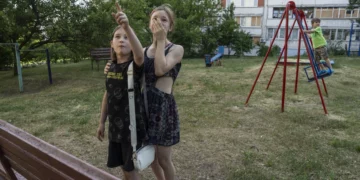Cultural Studies and studying itself at a Ukrainian University compared to a German University by Yaroslava Melnychenko
At some point in my life, I realized I wanted to study Cultural Studies. When applying to a university, I only applied to one program and one university — Cultural Studies at the National University of Kyiv Mohyla Academy. Throughout my studying, I haven’t regretted it once. Currently, I study Social Sciences and Cultural Studies at a Justus-Liebig-Universität Giesen. The experience of studying Cultural Studies in two different countries simultaneously gave me a few insights and thoughts on Cultural Studies and studying itself.
Cultural Studies in Ukraine and Cultural Studies in Germany differ. I think the different development histories of Cultural Studies in the two countries heavily influence it. While in Germany, modern Cultural Studies are influenced enormously by the Frankfurt School, which represents intellectuals that developed concepts to criticize society and culture that was contemporary to them. The development of Cultural Studies in Ukraine was greatly affected by Soviet ideology. Never mind, Cultural Studies were dissident — the vast majority of our Cultural Studies concurrently existed within the frame of ideology. That still impacts Cultural Studies in independent Ukraine. That is especially visible in the reading materials offered in some courses. Thus, Cultural Studies in Ukraine and Germany have differences connected to the historical context of the two countries.
Courses taught at the National University of Kyiv-Mohyla Academy and the Justus-Liebig-Universität Giesen are organized differently. Here at Justus-Liebig-Universität Giesen, I take four courses — Introduction to Cultural and Media Studies, Feminist Philosophy, Memory Practices, and Political Analysis. The courses are in English, and there are many other courses in English offered at the university. The faculty is very international, and many teachers of mine are not Germans and come from countries like Mexico or Azerbaijan. Additionally, most of my classes are full of other international students, which creates a multifaceted conversation. Most of the courses I take are seminar courses, which means I don’t have lectures. I like that format, but the number of readings offered per seminar can be upsetting, especially considering there are no lectures. At the National University of Kyiv-Mohyla Academy, it’s the opposite. The amount of literature we have to read per seminar can sometimes feel overwhelming. It’s necessary to acknowledge that those things are consequential to the frame in which the universities work.
Language is another thing that I have been thinking about extensively while studying in Germany. As I have previously mentioned, my studies here are in English. That is the first time I study something besides the English classes entirely in English. Even though the National University of Kyiv-Mohyla Academy has two official languages—Ukrainian and English, there are nearly no courses in Cultural Studies offered in English. That’s frustrating, especially considering how the russian language is frequently present in the courses’ reading materials. I think it’s important to implement more courses and reading materials in English to disrupt the presence of russian thought in Ukrainian universities. Additionally, it can attract more exchange students to the National University of Kyiv-Mohyla Academy. Language is an indispensable aspect of teaching, especially in Ukrainian universities.
In conclusion, I’d like to say that it’s significant to compare things. That way, we can see how things can be different and make a difference. While studying in Germany, I have gained valuable insights that will influence how I see Cultural Studies and studying forever.
Yaroslava Melnychenko








